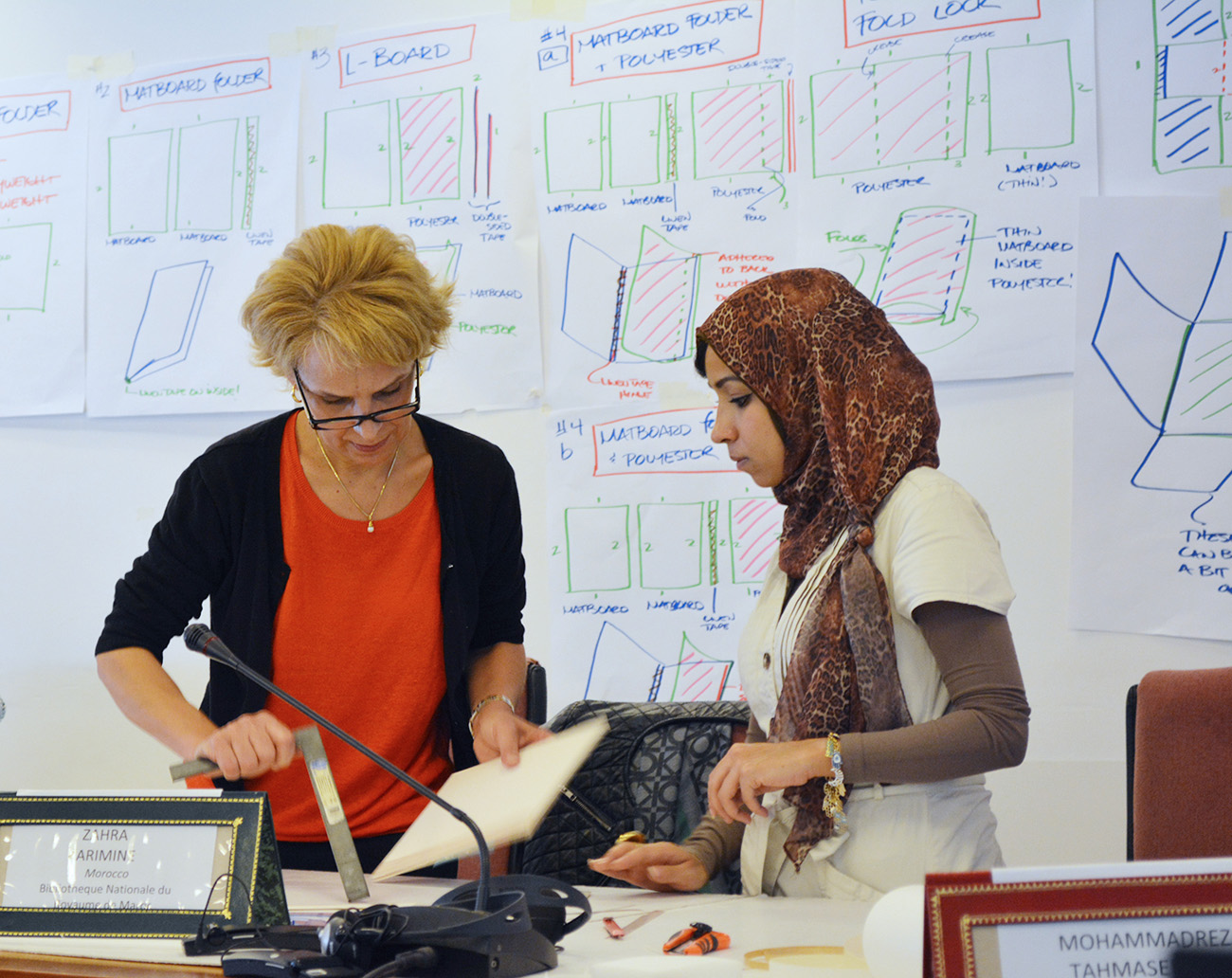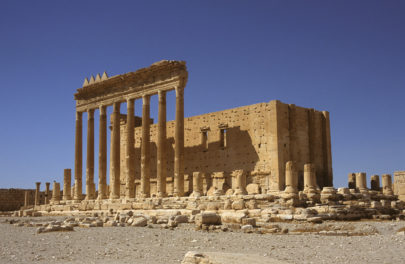Since 2011, the Getty Conservation Institute has partnered with the Arab Image Foundation, the Metropolitan Museum of Art, and the University of Delaware on the multi-year collaborative Middle East Photographic Preservation Initiative (MEPPI), with key funding provided by the Andrew W. Mellon Foundation. As the culmination of the initiative approaches, we will be sharing reflections from those who have taken part in MEPPI. —Ed.
Before completing my master’s degree, I had no background in photograph conservation—there was no one specialized in this field in Egypt. I selected photograph conservation for my thesis and started to teach myself through online resources, books, and journals, and by contacting professionals via email. But I wanted to know that what I concluded from my study was correct and that I was going the right direction—and this I achieved through MEPPI’s training and capacity-building courses for those responsible for the care and management of photographic collections.
MEPPI gave me the opportunity to discuss my work with professionals and increased my knowledge in many subjects; for example, in visual identification of different photographic processes, in digitization, and in how to control environmental conditions surrounding photographic collections, in which I had no previous scientific background. MEPPI focused on providing many hands-on activities that helped me gain a better understanding of the different topics addressed in the workshop lectures.
I was also given the opportunity to work as a teaching assistant in one of the MEPPI workshops. This allowed me to work closely with the instructors and learn from their teaching experience about the different teaching strategies they use to achieve the intended learning outcomes of the course and how to run a lecture without having participants lose interest. Now, I use this knowledge and teaching skills with my students.

Demonstrating the advantages and disadvantages of different photographic enclosures to participants at the MEPPI course on the environment, storage, and exhibition of photographs held in Morocco, October 2017. Photo courtesy of Tareq Elghoul, Aletihad newspaper, Abu Dhabi
Sharing Knowledge of Conservation
I finished my PhD in Photograph Conservation in May 2016. A year ago, the Faculty of Archaeology at Cairo University, where I work, added a course on the conservation and treatment of photographic materials. This was now possible since they have someone specialized in the field: me.
The knowledge I gained through my studies and through MEPPI helped me establish the course with the intention of passing on knowledge to my students in the simplest and most interesting way possible, something I learned from my MEPPI instructors—the importance of role playing, group discussion, problem solving, educational games, and other techniques.
I also teach as a lecturer in a joint master’s program between Helwan University (Egypt) and Catania University (Italy). Masters students need to receive a more profound course of study, and by working closely with professionals, I learned how to deal with students with different backgrounds and knowledge sets, and how to direct them in their studies.

Assisting a MEPPI course participant in making a four-flap enclosure for photographs, Morocco, October 2017. Photo courtesy of Tareq Elghoul, Aletihad newspaper, Abu Dhabi
During the past three years or so, Cairo University has increased the budget for updating its libraries, and I’m responsible for the references related to photography in our department library. Staff and students can now obtain online resources through their university account and through the Cairo University Central Library.

Observing a participant making enclosures for photographs, Morocco, October 2017. Photo courtesy of Tareq Elghoul, Aletihad newspaper, Abu Dhabi
MEPPI’s Legacy
Participating in MEPPI was beneficial for me on so many levels. I learned teaching strategies that are different from the ones we use at the university, and students seem to respond to these quite well. I always have their attention, and they are now keener to learn more. Many more people are becoming interested in historical photographs—materials that were once not even recognized as heritage in Egypt.

Lecturing on disaster planning for photographic collections, Morocco, October 2017. Photo courtesy of Tareq Elghoul, Aletihad newspaper, Abu Dhabi
I have spoken to the new manager of the Conservation Center at our university (a private unit) about offering a series of courses in photograph conservation through the center for all those who are interested. In this way, what we have learned will reach more people, and more people will become involved in the issue of photograph preservation.
I think this is a very important outcome of my MEPPI participation, since the knowledge I’ve gained is now spreading from one person to another. This was one of the main aims of MEPPI from the beginning: to establish a network among professionals in the region.
MEPPI participants were lucky to be selected for such an informative, rich, and interesting experience. From day one, MEPPI instructors made it clear that their main objective was to educate us so we can go back home and educate others in the region and help them in preserving the photographic heritage of the Middle East.





I need information about training courses, Preserving the Photographic Heritage of the Middle East, the cost and schedule as well.
Bests,
Suzan
Hi dear,
There’s a workshop on photograph conservation at the university of Ain Shams coming up this December 2018.
Best,
Maha
Dr. Maha Ali
Lecturer of Photograph Conservation
Faculty of Archaeology
Cairo University